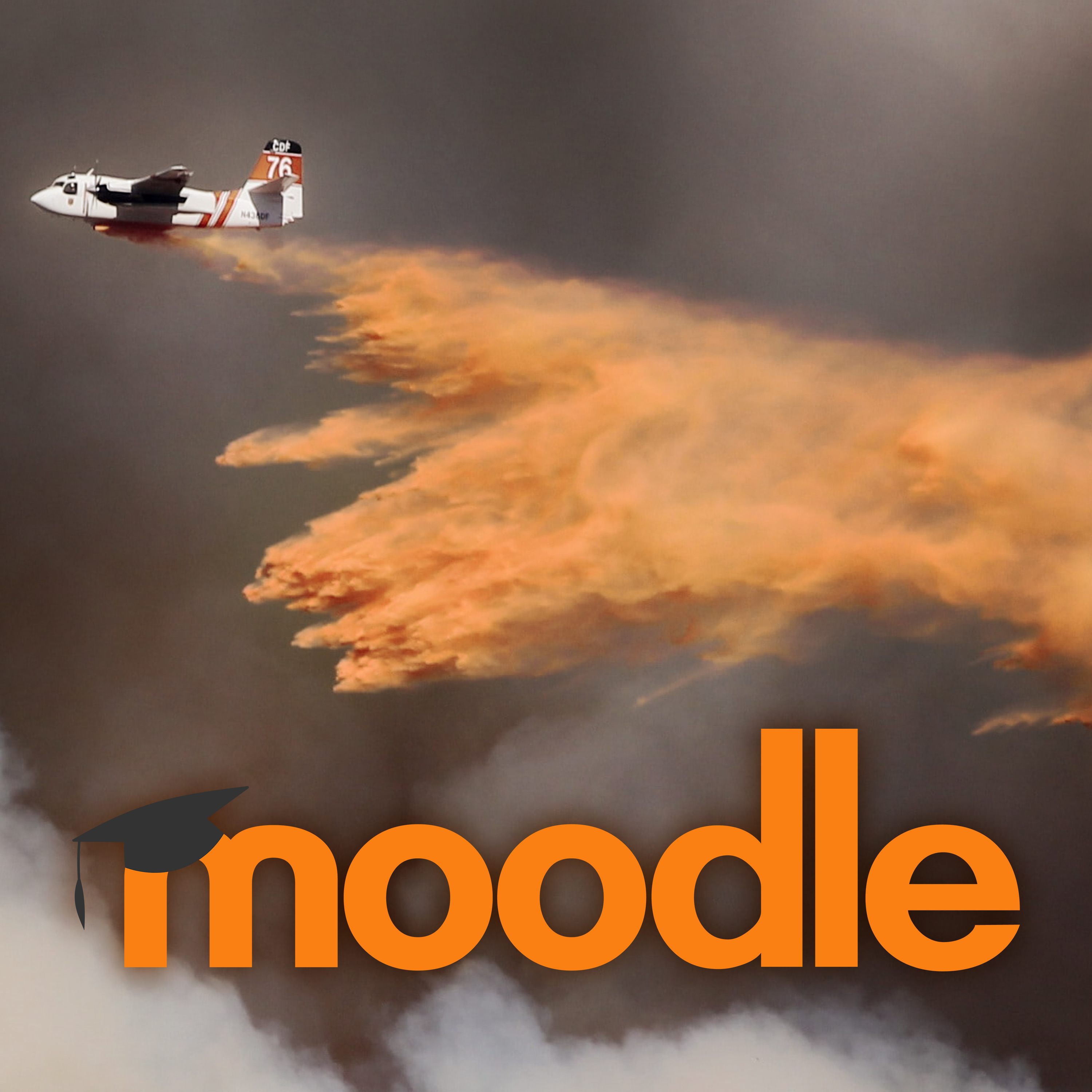Moodle: NKN's Online Learning Management
March 30, 2020
As we have all seen the past few weeks, online learning can be a valuable tool for educators, students, and workers alike. The open source learning management system Moodle is just one of these tools that U of I’s Northwest Knowledge Network (NKN) utilizes.
In 2012, before she came to work as web developer for NKN, Gina Wilson was working on a grant with Dr. Eva Strand in the Department of Fire Sciences, College of Natural Resources. The grant’s main focus was technology transfer of wildland fire scientific knowledge, which involved helping develop decision support tools and providing science application services to the interagency wildland fire community. It also included the delivery and maintenance of online training course for this community which includes the US Forest Service, the Bureau of Land Management, and the National Parks Service. The commercial online platforms that the departments used for training at the time charged by the user—and with around 1,000 users for each course, this was a very costly option. In looking at open source alternatives, Wilson and her colleagues found Moodle. She says, “at the time, I wasn’t working for NKN, but NKN was providing server support for the project that I was on. We transferred everything over from the proprietary software, put our courses on the Moodle LMS, hosted on NKN servers, and were able to start using courses and registering students within a very short time. It has continued to grow from there.†NKN now manages Moodle courses, but this project is something that Gina brought with her when she joined NKN.
After starting out with only 200 users, that number has steadily grown to 5,300. “We have about 50 courses that are held on the Moodle platform, so throughout the year there could be 300-400 students using the courses at any one time.†Once Moodle had proven to be a successful tool for Wilson and NKN, more organizations followed in their footsteps. “The Office of Wildland Fire, with the Department of the Interior, decided that they liked what we were doing, so they developed their own 2.0 version of what we did. It’s the same platform, and while we are still maintaining the courses we do at NKN, I’m now one of the system administrators on the national platform as well.†The Moodle courses have such a wide reach that Wilson jokes, “sometimes trying to explain this to fellow NKN people can be difficult, just because there are so many agencies involved, it’s kind of crazy. We have a myriad of federal, state, and even private fire personnel taking these courses for their certifications.â€
The courses NKN manages on Moodle are mainly wildland fire-based, but they still have a wide variety of subjects. The subjects range from “Stress First Aid for Wildland Firefightersâ€â€”which helps firefighters handle stress and take care of themselves—and “Building Effective Relationships at Workâ€, to more technical and specialized courses like “The National Fire Danger Rating Systemâ€, “Geospatial Fire Analysis Interpretation and Applicationâ€, and “Fire and Ecosystem Managementâ€. Many of these courses are required training for the fire community to qualify them for different jobs. Wilson says her role is to “help the subject matter experts get their courses into an online learning environment and provide technical support.â€
The Impact of Online Learning
Wilson says when she started work on this project, she noticed that the online courses for the Wildland Fire community were scattered on different platforms with no continuity between regions. “I saw a need for one place—one-stop shopping—for everyone, not just Forest Service and BLM people, because when you’re fighting fires it’s a community.†She recognized the importance of having a single platform for all online training that was easy to use and maintain. Once they found that in Moodle, she says “the Office of Wildland Fire recognized that as well. They saw what we were doing and took it to more of a national level. We’re excited to still be a part of that and to help continue to grow it and make it more of a community platform for wildland firefighters.â€
The impact of these Moodle courses can be measured in many ways—it could be measured in number of users, or how many users are in different areas. Wilson says, “if you look at reach, we take care of people in all 50 states. That’s how far-reaching this project is.†Another measure of impact is the specific type of user on Moodle. “A lot of the people that we are serving are the ones that are making the decisions on these large, catastrophic fires driven by climate change, like the California fires. We’re serving the important people on the ground, who make the decisions about safety, fire effects, and fire science.†These wide-reaching programs also link to the priorities of the University of Idaho. Moodle “goes with the College of Natural Resources Fire Science program, which is well-known at the University.â€
“Right now, it’s apparent how online courses are making a huge difference.†With the current surge in online distance learning, Wilson has been extremely busy. “Some of these courses that were being held in physical locations now have to go online, so I’ve been busy getting people set up with training and getting the content in the LMS for them—especially on the national platform.†She thinks that online learning is going to become a bigger part of everyone’s lives. “I would say that online courses, online learning management, and distance learning are probably our new ways of learning for the foreseeable future. I think it’s going to play a larger role from here on out.â€
Article by Katy Riendeau
IBEST Design & Marketing Coordinator